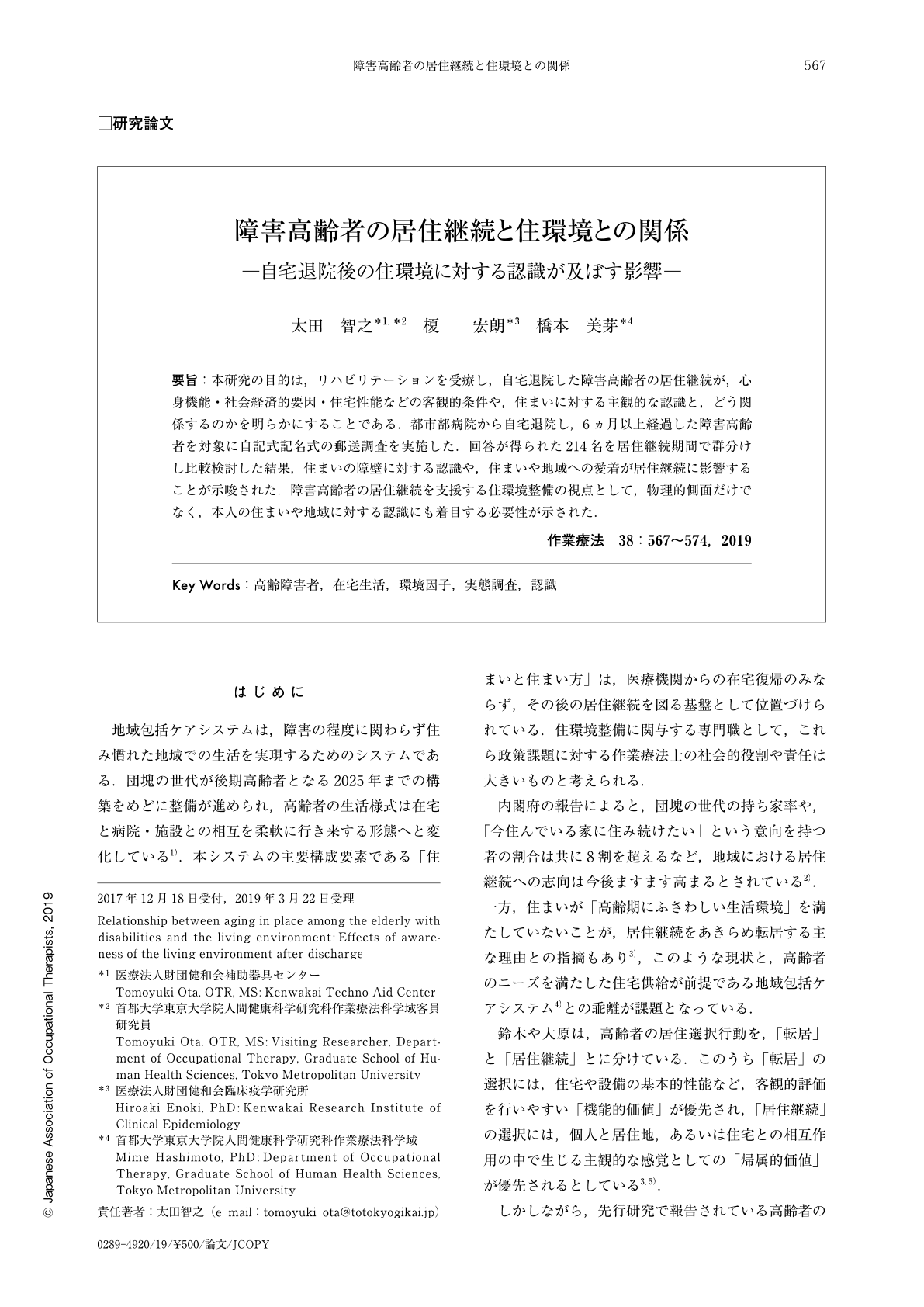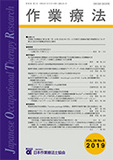Japanese
English
- 販売していません
- Abstract 文献概要
- 1ページ目 Look Inside
- 参考文献 Reference
要旨:本研究の目的は,リハビリテーションを受療し,自宅退院した障害高齢者の居住継続が,心身機能・社会経済的要因・住宅性能などの客観的条件や,住まいに対する主観的な認識と,どう関係するのかを明らかにすることである.都市部病院から自宅退院し,6ヵ月以上経過した障害高齢者を対象に自記式記名式の郵送調査を実施した.回答が得られた214名を居住継続期間で群分けし比較検討した結果,住まいの障壁に対する認識や,住まいや地域への愛着が居住継続に影響することが示唆された.障害高齢者の居住継続を支援する住環境整備の視点として,物理的側面だけでなく,本人の住まいや地域に対する認識にも着目する必要性が示された.
For the elderly with disabilities to continuously live at home after discharge from hospital and rehabilitation, various factors must be considered. These factors include physical and mental function, socio-economics, and housing performance. We investigated the elderly with disabilities who spent at least six months at home upon discharge from the hospital in urban areas. A self-administered survey was conducted through registered mail, and there were 214 responses. The answers were categorized and analyzed according to the duration of living at home. The results indicated that a perception of environmental barriers in the house, emotional attachment to the house, and the surrounding community influence the subjects' desire to continuously live at home. In order improve the living environment so that the elderly may continue to live at home, OTs need to address not only the physical aspects of the home environment but also the cognitive/emotional attachments to the person's own house and community.

Copyright © 2019, Japanese Association of Occupational Therapists. All rights reserved.


